Acceleration Consortium
The Acceleration Consortium is leading a paradigm shift in scientific discovery through the development of self-driving artificial intelligence-guided robotic labs that accelerate the discovery of advanced materials and small molecules, from decades to years. The consortium addresses fundamental topics, such as deep learning algorithms, materials modelling, and robotics and applied challenges, such as discovering materials for a wide range of commercial applications. The Acceleration Consortium supports a commercialization-focused ecosystem that aims to translates materials discoveries through start-ups and industry partnerships.
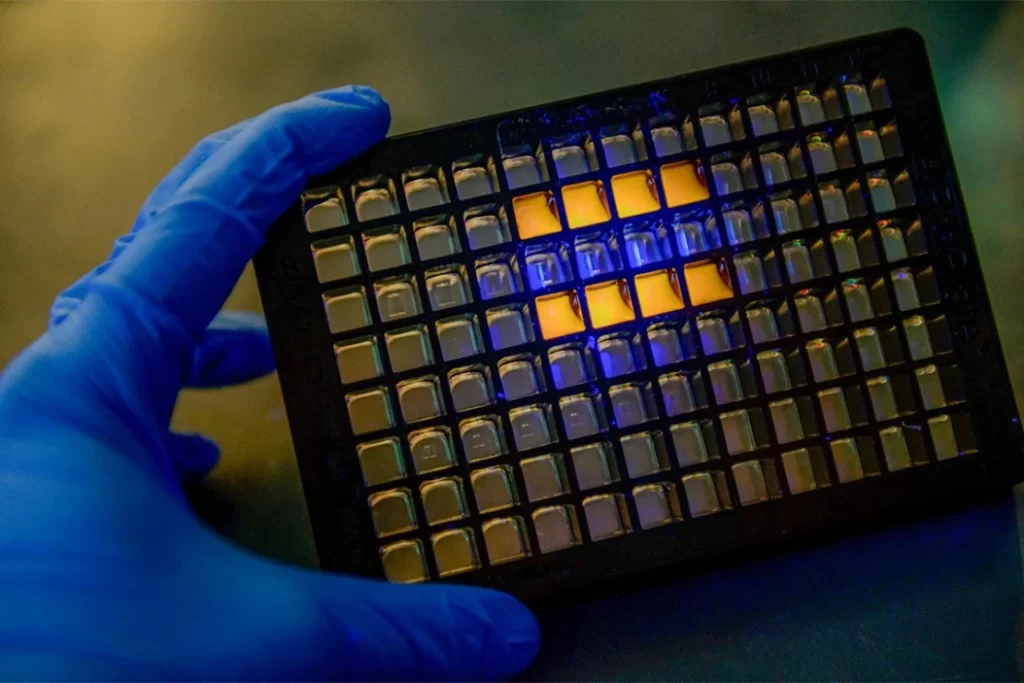
U of T 'self-driving lab' to focus on next-gen human tissue models
The Self-Driving Laboratory for Human Organ Mimicry is the latest self-driving lab to spring from a historic $200-million grant from the Canada First Research Excellence Fund to the Acceleration Consortium
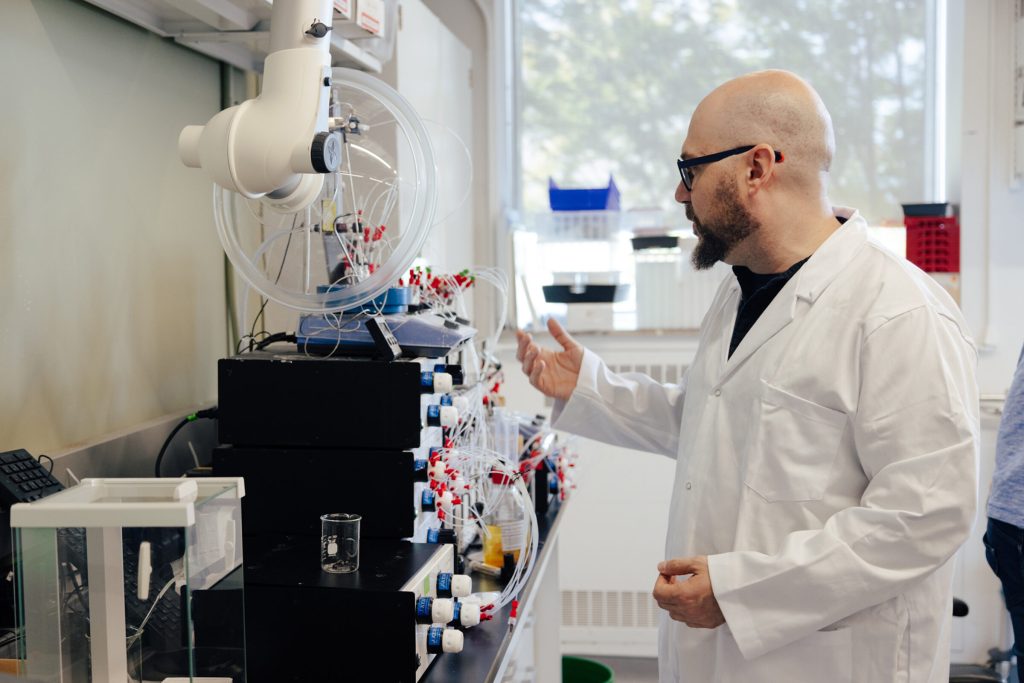
The Lab That (Almost) Runs Itself
Robots and AI are changing how we do science, making it faster, cheaper and more productive. By Scott Anderson for U of T Magazine
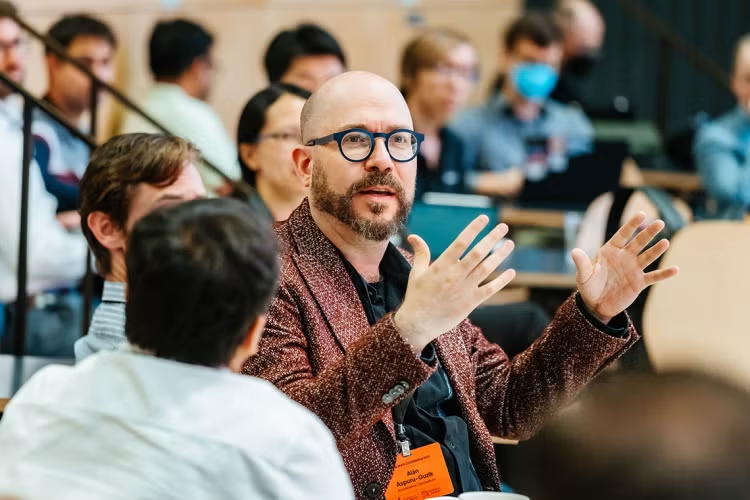
Global experts gather at U of T to discuss how ‘self driving labs’ will revolutionize scientific discovery
The Acceleration Consortium (AC) at the University of Toronto recently brought together more than 350 representatives from academia, industry and government from 16 countries to discuss how “self-driving labs” are revolutionizing the speed and impact of scientific discovery. Held over four days in August, the consortium’s second annual Accelerate conference focused on key themes such as talent development, collaboration […]
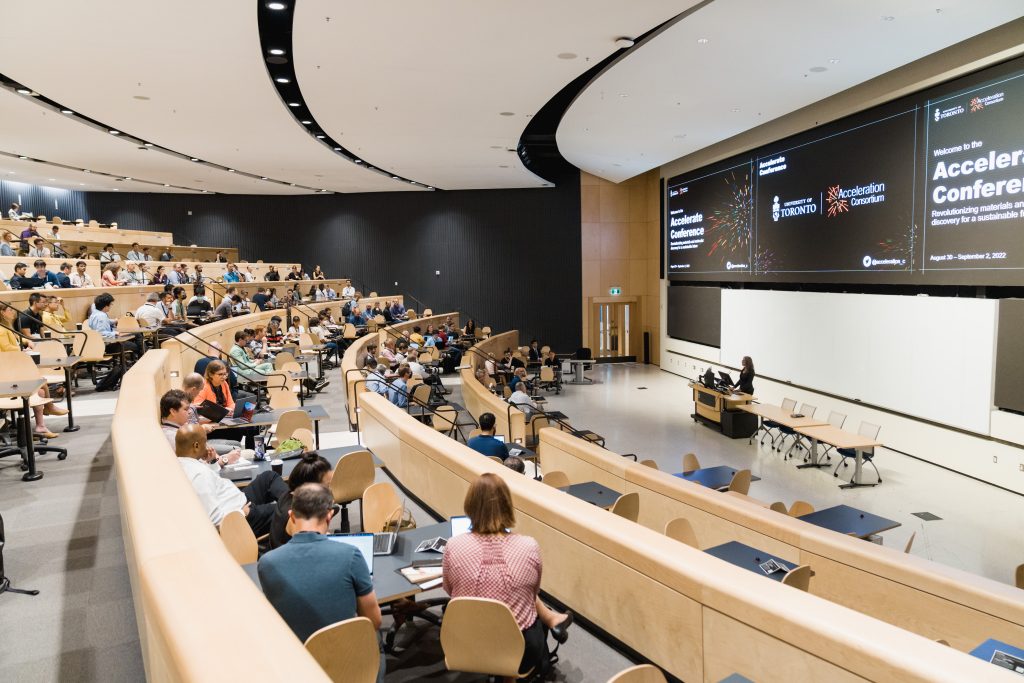
2023 Accelerate Conference
Accelerate is an interdisciplinary event that brings together changemakers in academia, industry and government who are shaping the emerging field of AI for science. Conference talks, workshops and networking opportunities will allow attendees to connect with a global community working to realize a healthy, sustainable, materially different future. The 2023 conference takes place August 22-25 […]
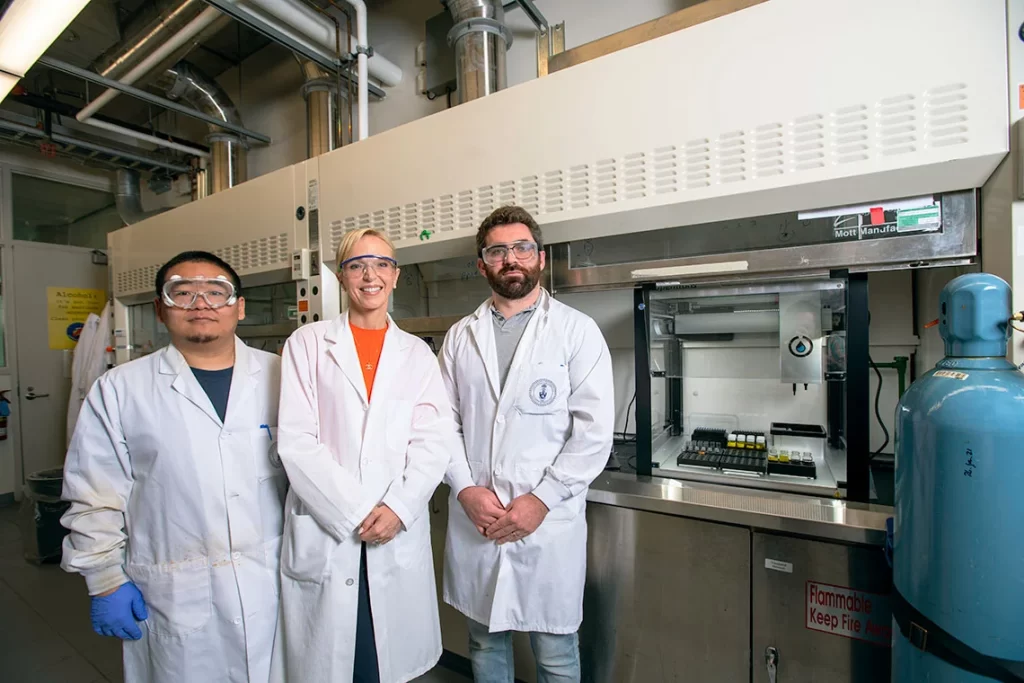
New autonomous lab at University of Toronto to improve drug formulation
A new autonomous lab being built in the University of Toronto's Leslie Dan Faculty of Pharmacy will help to design and optimize formulations that will improve bioavailability, stability and efficacy of a variety of drugs.
Christine Allen, a professor in the faculty whose research focuses on drug development and disease diagnostics, is co-leading the lab with Frank Gu, a professor in the department of chemical engineering and applied chemistry in the Faculty of Applied Science & Engineering.
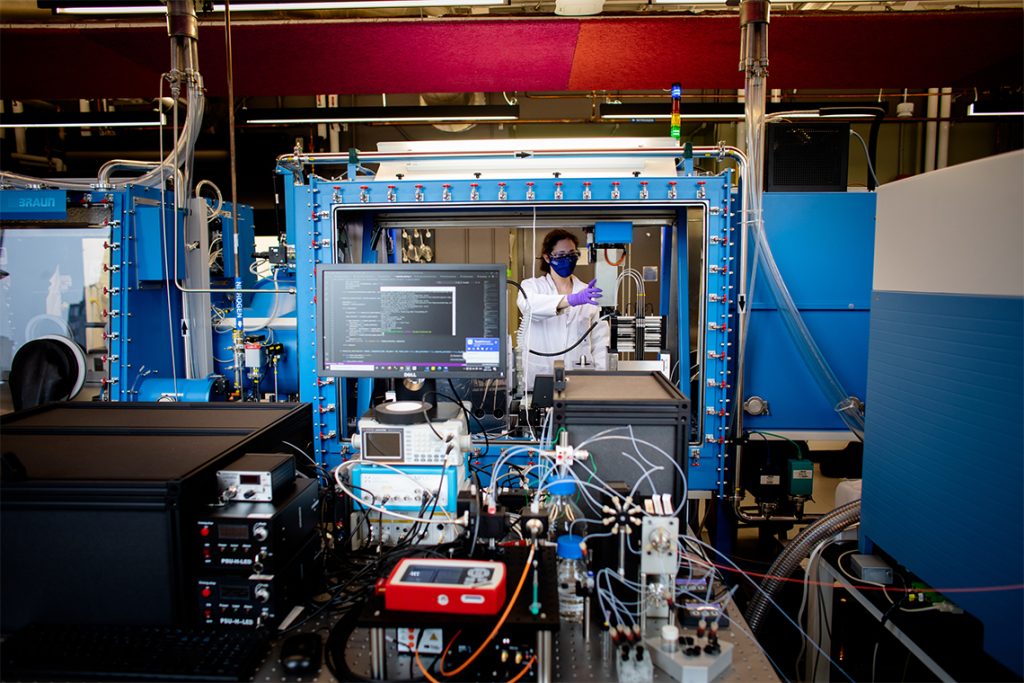
U of T receives $200-million grant to support Acceleration Consortium's ‘self-driving labs’ research
The University of Toronto has been awarded a $200-million grant from the Canada First Research Excellence Fund (CFREF) to revolutionize the speed and impact of scientific discovery through its Acceleration Consortium. The funding – the largest federal research grant ever awarded to a Canadian university – will support the consortium’s work on “self-driving labs” that combine artificial intelligence, robotics and advanced computing to discover new materials and molecules in a fraction of the usual time and cost.
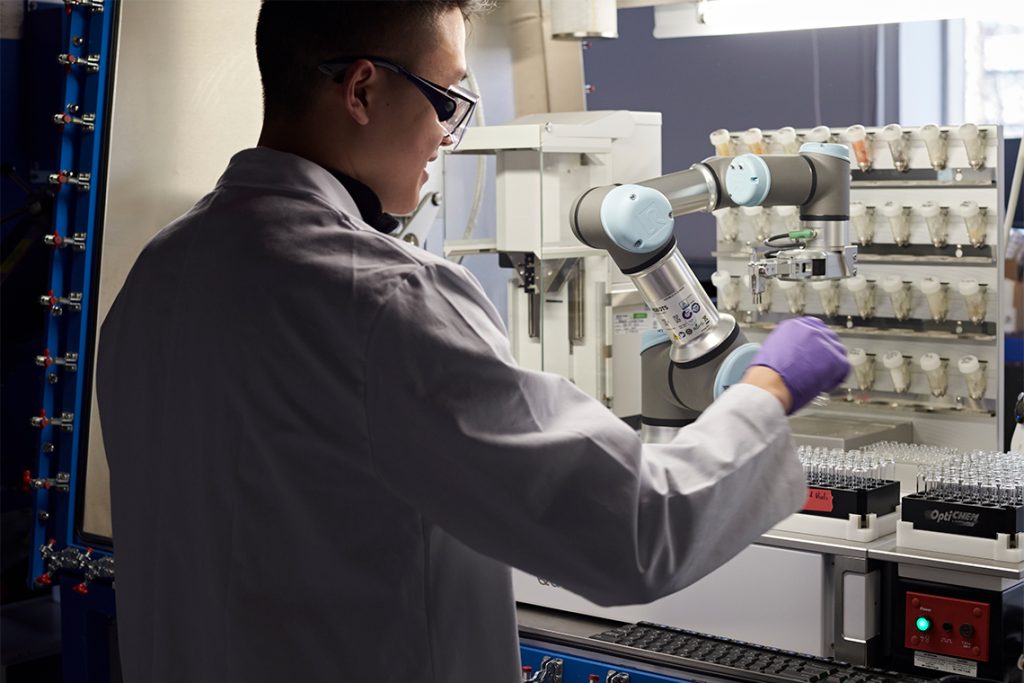
Experts say $200-million grant awarded to U of T will drive ‘big science’ via the Acceleration Consortium
The Acceleration Consortium will use the funding to commercialize ethically designed technologies and materials to benefit society and train today’s scientists with the skills they need to advance the emerging field of accelerated materials discovery. It will also examine critical issues regarding the application of the technology, including from environmental and Indigenous perspectives.

AI could develop cancer treatments in less than a month
In less than a month, researchers from University of Toronto’s Acceleration Consortium, in partnership with Insilico Medicine, have designed a potential treatment for hepatocellular carcinoma (HCC), an aggressive and common form of liver cancer that claims approximately 700,000 lives each year. The study is the first to use AlphaFold — an AI-powered protein structure database — in an end-to-end AI drug discovery platform called Pharma.AI.
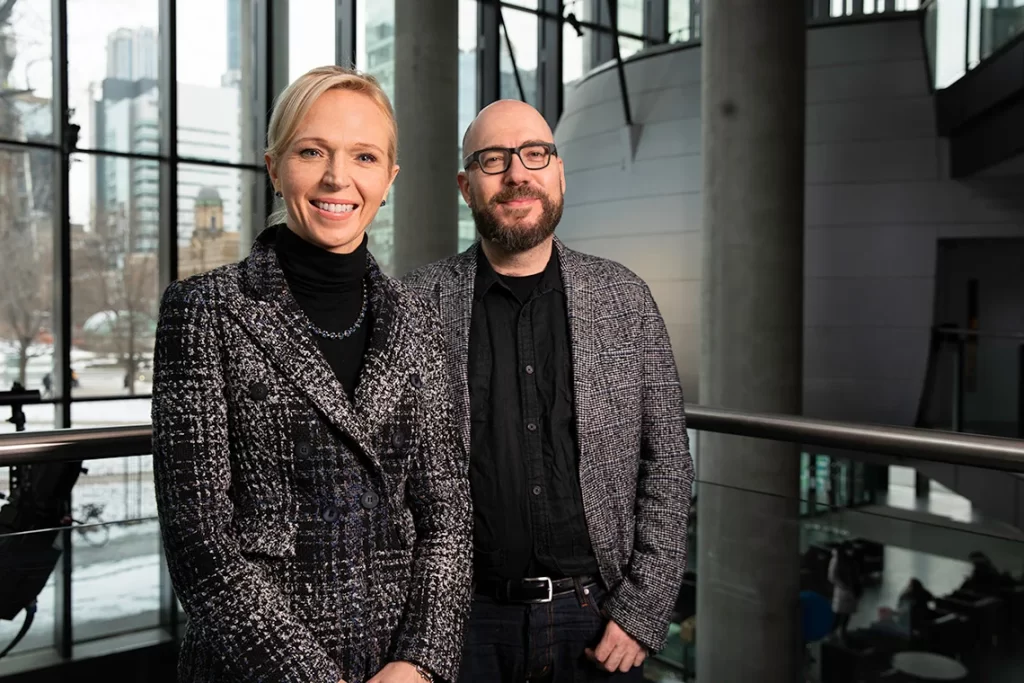
U of T scientists use AI to fast-track drug formulation development
In a bid to reduce the time and cost associated with developing promising new medicines, U of T scientists have successfully tested the use of artificial intelligence to guide the design of long-acting injectable drug formulations. The study was led by Profs. Christine Allen and Alán Aspuru-Guzik.
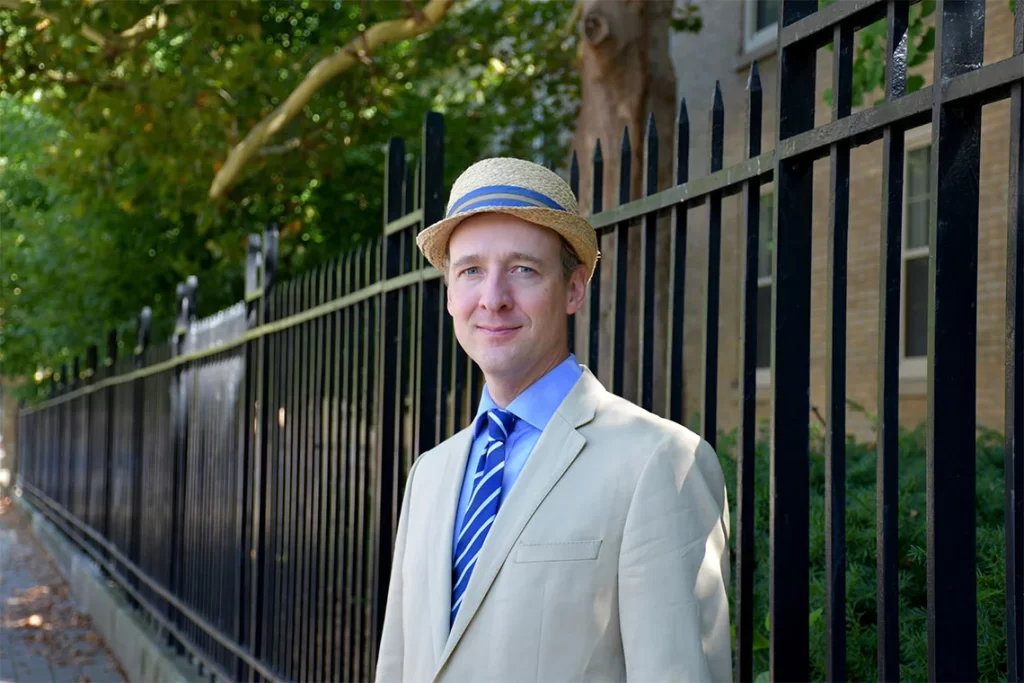
'No small feat': U of T's Anatole von Lilienfeld is using AI to explore the vastness of 'chemical space'
Anatole von Lilienfeld navigates space – but rather than exploring the depths of the universe, his artificial intelligence-powered work focuses on “chemical space” and the untapped potential of undiscovered chemical combinations. U of T news recently spoke with von Lilienfeld about the digitization of chemistry and what the future holds.
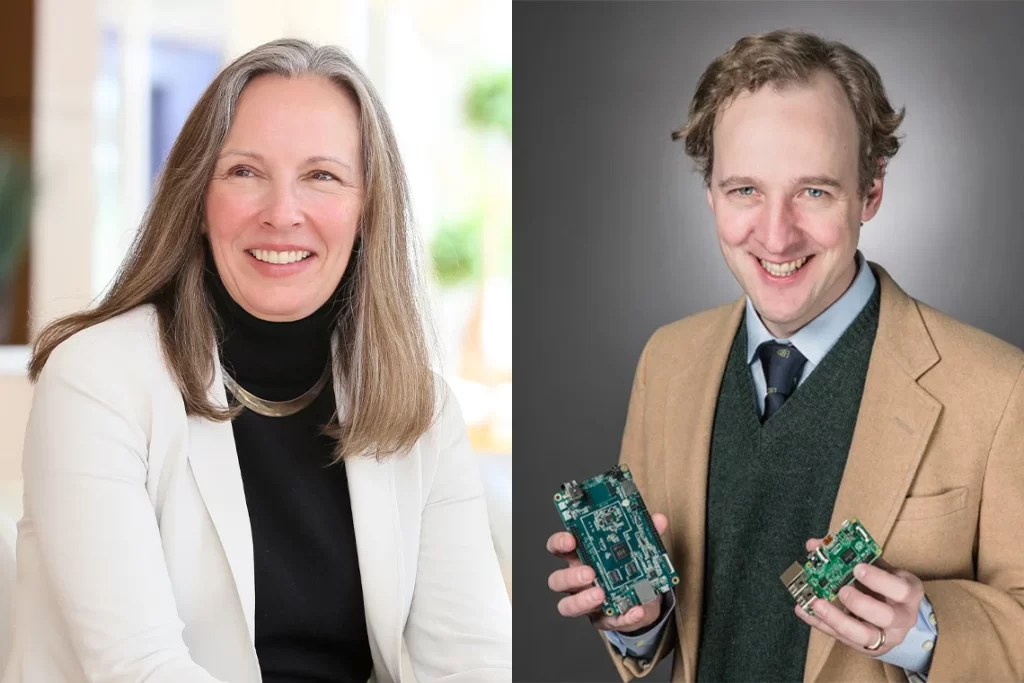
Two U of T professors named Canada CIFAR AI Chairs
University of Toronto professors Gillian Hadfield, director of the Schwartz Reisman Institute for Technology & Society, and Anatole von Lilienfeld, of the department of chemistry in the Faculty of Arts & Science, have been named Canada CIFAR AI Chairs in recognition of their global leadership in artificial intelligence research.

Gift from Schmidt Futures to spark a revolution in AI-based STEM research at the University of Toronto
With the goal of accelerating scientific research through the application of artificial intelligence, Schmidt Futures is investing $148-million in nine global universities, including U of T, the only Canadian university chosen for the program. “As the home of deep learning, the University of Toronto is proud to partner with Schmidt Futures on this forward-looking program, which will accelerate humanity’s ability to meet some of the most important challenges of our time,” said Meric Gertler, president of U of T.
